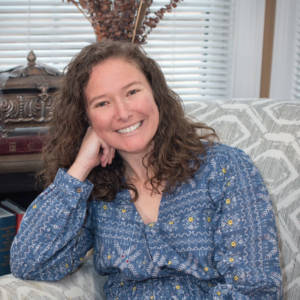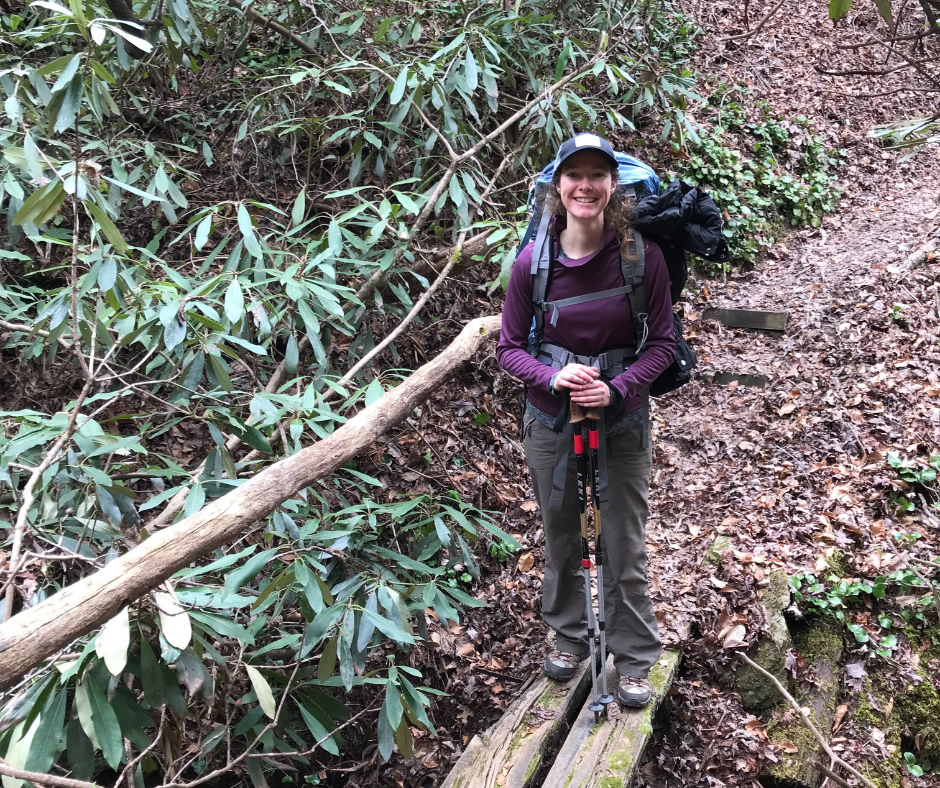ABOUT ME
Hi! My name is Ashley, and I recently joined the team at Restoration Counseling of Atlanta as a therapist. I am excited to be here in this budding city and am looking forward to serving its people.
Before beginning my journey as a therapist, I worked in various ministry capacities in megachurches for 5 years and then at a church plant for another 5 years. I wore many hats at the church plant, as one does when working at a church plant, but my primary responsibility was to build a robust and excellent kid’s ministry – kids outnumbered adults 3:1 in our small island town.
Our kid’s ministry focused on the story of Jesus in the Bible. For four years we went through the entire Bible and found Jesus in every story; my job was to take our Scripture for the week and make sure each lesson pointed to Jesus. Best job ever!
It was during this time I fell in love with stories. I always loved reading adventure stories growing up – I think my favorites were The Chronicles of Narnia and historical fiction novels that told the stories of ordinary people leading and loving well amidst great adversity. But when I discovered the full narrative of Scripture and not a bunch of individual stories in the Bible, I began to discover my story too.
As our kid’s ministry focused on the end of God’s story in the Bible, I completed my bachelor’s in Christian Ministry and decided I wanted to pursue my master’s in counseling. On my last Sunday, we finished all of God’s story in the Bible, which I think is pretty poetic.
I moved to Chicagoland and began the Clinical Mental Health Counseling program at Wheaton College where my love of story only deepened. I worked under Dr. Mark Yarhouse doing research and consultations with individuals and families navigating conflict with their sexual and/or gender identity with their religious identity. Dr. Yarhouse exercises a therapeutic approach called narrative therapy to help people find congruence in the different parts of their identity.
Narrative therapy helps a person make meaning of their story. Often times where pain or shame exists in a person’s story, unhelpful narratives can be created about themselves. Narrative therapy tries to take these unhelpful narratives and help the person create a narrative that highlights the strength and beauty in their story.
____
![]() A few years ago, a friend and I decided to do a weekend backpacking trip. We hiked five miles up a mountain and camped, hiked down and around the mountain to a lake and camped, and then hiked five miles up the other side of the mountain back to the car.
A few years ago, a friend and I decided to do a weekend backpacking trip. We hiked five miles up a mountain and camped, hiked down and around the mountain to a lake and camped, and then hiked five miles up the other side of the mountain back to the car.
After our long day of hiking, we made it to the lake, ate our dinners, and soon after got into our tiny tent and into our sleeping bags. A short time passed, and I suddenly felt a fierce rumbling in my belly, and in seconds I was trying to scramble out of my sleeping bag and out of the tent – I was going to be sick. Alas, I did not make it out of the tent in time, and where our heads had been was now my dinner; thankfully my friend had plastered herself up against the wall of the tent in time.
In the dark, I climbed out of the tent to go be sick again. My friend stayed and began cleaning my mess in the tent as best as one can in the dark without cleaning supplies. The rest of the night was basically sleepless. I was sick and my friend tried to sleep in her hammock, but then, of course, it started to rain. We got up before the sun, and the thought of eating my prepackaged, high in sodium hiker’s food made me queasy, so we packed up and started making our five-mile journey back up the mountain to the car.
With no food and little sleep, the hike up was brutal – about halfway up, I lay down depleted and exhausted on the trail. While lying there it started to snow, and I slowly got back up and kept moving forward; neither of us brought clothes for snow. At this point, moving my legs up and forward was difficult. It felt so strange needing to will my legs to work. My saint of a friend ended up taking my pack, and I hobbled on at the pace of a turtle – I actually think a turtle could have beat me in a race at this point.
Somehow we made it to the car, got me some food and electrolytes, and I quickly came back to life. On the drive home, the narrative spinning in my head went something like, “I cannot believe you did not get out of the tent fast enough; that is so gross. My legs will not do what they are supposed to do; Ashley, you are so weak. You felt so much better with just a small amount of crackers and Gatorade; you were not really sick.” This narrative spun on a loop in my head – I was ashamed, and I wanted to hide.
When my friend and I reminisce about this trip, I praise her for her kindness and strength – those last five miles she never grimaced or criticized me. My narrative has since evolved and instead of criticizing myself, I remember, “Wow! I have an amazing friend! Those last five miles were really hard and scary. I am not weak – my body did not have what it needed to work properly.”
____
Story matters. As a therapist, I get to journey with people in their stories and act as a trail guide of sorts. I help people set a pace for healing because going too fast or too slow could be hurtful and not helpful. I point out pieces in a person’s story they might not see or notice. And I provide knowledge and insight about the trail along the way.
No one’s story is finished, and there is always an opportunity for change, growth, and healing. I believe our pain or our struggles is what connects our stories the most as humans; no one is immune to suffering. This is why I see people from the ages of 12 to 92 with various issues.
 Written by Ashley Lewis, MA, APC
Written by Ashley Lewis, MA, APC
In counseling, Ashley has an eclectic approach with an emphasis on developmental psychology and trauma-informed care. She strives to meet clients where they are. Ashley works with adolescents and adults of all ages and backgrounds and from all circumstances. She hopes to provide a safe space where clients can feel seen and heard and find hope and strength in their stories. Areas of focus include depression, anxiety, sexual and gender identity concerns, trauma, adoption, anger, and grief.
Online, Roswell, & Woodstock locations

